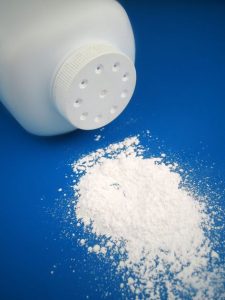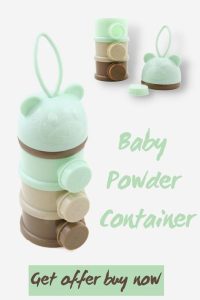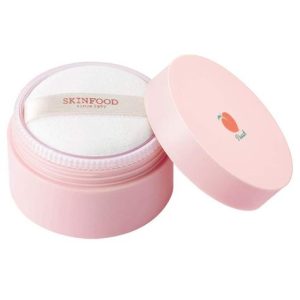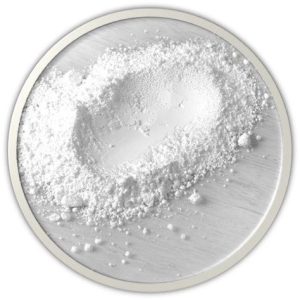For generations, talc-based baby powders were a common nursery staple. However, recent concerns about potential health risks have led many parents to explore natural alternatives. This guide will delve into the world of natural baby powders, exploring their ingredients, benefits, and safe use.
Understanding the Shift Towards Natural Baby Powders
Talc is a mineral that has been used in various products for centuries, including baby powder. However, some studies have raised concerns about a possible link between talc use and health problems.
This has led many parents to seek out natural alternatives for their babies’ delicate skin. Natural baby powders are formulated with ingredients derived from nature, often using starches, clays, and botanical extracts.
Key Ingredients in Natural Baby Powders
There are a variety of natural ingredients commonly found in natural baby powders. Here’s a closer look at some of the most popular ones:
Cornstarch:
A popular absorbent ingredient, cornstarch helps keep baby’s skin dry and comfortable.
Arrowroot powder:
Similar to cornstarch, arrowroot powder absorbs moisture and is known for its soothing properties.
Oatmeal:
Finely ground oatmeal can be calming and moisturizing for irritated skin.
Kaolin clay:
This gentle clay can help absorb excess moisture and soothe diaper rash.
Coconut oil:
Coconut oil offers natural antibacterial and antifungal properties, while also moisturizing the skin.
Remember, always check the label to ensure the natural baby powder is suitable for your baby’s skin.

The Potential Benefits of Natural Baby Powders
Natural baby powders can offer several potential benefits for your baby’s delicate skin:
- Moisture absorption: These powders can help absorb excess moisture, reducing the risk of diaper rash and irritation.
- Soothing relief: Some natural ingredients, like oatmeal and coconut oil, can soothe and calm irritated skin.
- Gentle on skin: Natural powders are often formulated without harsh chemicals or fragrances, making them suitable for sensitive skin.
It’s important to note that natural baby powders are not a cure-all for diaper rash or irritation. If your baby has persistent skin problems, consult a pediatrician.
Safe Application of Natural Baby Powders
Here are some key safety tips for using natural baby powder on your baby:
- Less is more: Apply a small amount of powder and shake off any excess.
- Avoid the face: Never apply powder directly to your baby’s face, as inhalation can irritate airways.
- Focus on diaper area: Apply powder only to the diaper area, patting gently to ensure even distribution.
- Air circulation is key: Allow for air circulation between diaper changes to prevent moisture buildup.

Alternatives to Natural Baby Powders
If you’re unsure about using any type of baby powder, there are alternative methods to keep your baby’s skin dry and comfortable:
- Frequent diaper changes: This is the single most effective way to prevent diaper rash and irritation.
- Diaper liners: Diaper liners can help absorb moisture and protect your baby’s skin.
- Water wipes: Water wipes are a gentle and effective way to clean your baby’s diaper area without harsh chemicals.
- Letting baby air out: Allowing your baby to have some diaper-free time each day can help prevent irritation.
Choosing the Right Option for Your Baby
The decision of whether or not to use natural baby powder is a personal one. Consider your baby’s individual needs and sensitivities when making your choice.
- Talk to your pediatrician if you have any concerns about using natural baby powder on your baby.
- Patch test any new product on a small area of your baby’s skin before applying it more liberally.
With a little research and planning, you can find the gentlest and most effective way to keep your baby’s skin comfortable and healthy.

The Importance of Skin Care Routines for Babies
Babies have delicate skin that requires gentle care. Here are some essential aspects of a healthy skin care routine for your baby:
- Bathing: Bathing your baby 2-3 times a week with lukewarm water and a gentle, fragrance-free cleanser is sufficient. Avoid excessive bathing, which can dry out your baby’s skin.
- Moisturizing: Regularly moisturizing your baby’s skin with a fragrance-free lotion or cream can help keep it soft and supple. Petroleum jelly can also be used to protect areas prone to diaper rash.
- Diaper changing: Frequent diaper changes are crucial to prevent diaper rash. Change your baby’s diaper whenever it’s soiled or wet.
- Gentle drying: Gently pat your baby’s skin dry after bath time or diaper changes. Avoid rubbing, which can irritate the skin.
Creating a Diaper-Changing Station
Having a designated diaper-changing station can make diaper changes easier and more efficient. Here are some essentials to include:
- Changing pad: A comfortable changing pad will make diaper changes more pleasant for both you and your baby.
- Diapers and wipes: Choose diapers and wipes that are fragrance-free and gentle on your baby’s skin.
- Diaper rash cream: Keep a diaper rash cream on hand to treat diaper rash at the first sign.
- Diaper pail: A diaper pail with a lid will help contain odors.

When to Talk to Your Pediatrician
If you have any concerns about your baby’s skin, consult your pediatrician. Here are some specific situations to seek professional guidance:
- Severe diaper rash: If your baby’s diaper rash is severe, worsens, or doesn’t improve with home care, consult your pediatrician.
- Signs of infection: If you notice redness, swelling, or pus around your baby’s diaper area, these could be signs of infection and require a doctor’s evaluation.
- Eczema or other skin conditions: If your baby has eczema or another skin condition, your pediatrician can recommend the best course of treatment.
By following these tips and consulting your pediatrician when needed, you can help keep your baby’s skin healthy and comfortable.
The Environmental Impact of Natural Baby Powder
While natural baby powder can be a gentle choice for your baby’s skin, it’s important to consider the environmental impact of the products you use. Here’s a look at some factors to keep in mind:
- Source of ingredients: Look for natural baby powder brands that source their ingredients sustainably. This can minimize environmental impact during production.
- Biodegradable ingredients: Choose natural baby powders made with biodegradable ingredients, like cornstarch or arrowroot powder. These ingredients decompose naturally and won’t harm the environment.
- Minimal packaging: Consider opting for natural baby powder with minimal packaging. This can reduce waste.

DIY Natural Diaper Rash Remedies
There are also natural remedies you can try at home to soothe diaper rash, alongside a gentle skin care routine:
- Coconut oil: Coconut oil has natural antifungal and antibacterial properties. Apply a thin layer of virgin coconut oil to your baby’s clean, dry diaper area.
Safety reminder: Patch test any new substance on a small area of your baby’s skin before applying it more liberally. If irritation occurs, discontinue use.
- Oatmeal bath: Oatmeal has soothing properties that can help relieve diaper rash discomfort. Grind oatmeal into a fine powder and add it to your baby’s bathwater. Soak for 10-15 minutes, then pat dry gently.
Remember, these at-home remedies are for temporary relief. If your baby’s diaper rash is severe or persistent, consult your pediatrician.
The Joy of Caring for Your Baby’s Skin
There’s immense joy and satisfaction in caring for your baby’s delicate skin. By following a gentle skincare routine, using natural products whenever possible, and consulting your pediatrician when needed, you can help your baby thrive and feel comfortable throughout their early stages.





